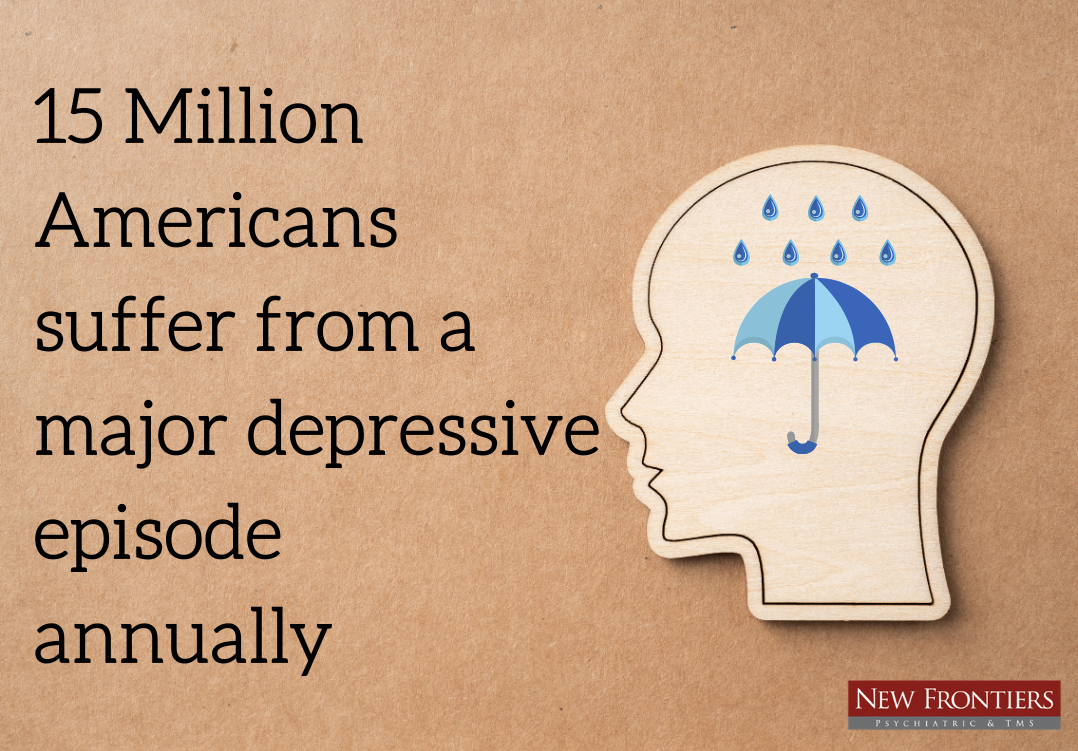MAJOR DEPRESSIVE DISORDER
MDD stands for major depressive disorder, which is also called clinical depression. According to estimates, one out of six people will experience a major depressive episode sometime in their life. In the United States, 15 million adults suffer a major depressive episode annually. MDD is characterized by depressed mood, persistent feelings of sadness or loss of interest in daily activities that severely impairs your daily life. It can also lead to a variety of emotional and physical problems.
The mainstays of treatment are pharmacotherapy (medication therapy), neuromodulatory techniques and evidence-based psychotherapy (e.g. cognitive behavioral therapy). However, many MDD patients still report insufficient relief from these treatments. One widely cited Star D trial showed that up to half of patients failed to respond to first-line treatments, and each successive treatment had a lower remission rate. Pharmacotherapy often has various side effects that can be difficult to tolerate. Psychotherapy offers invaluable tools for building someone’s internal resilience; however, treatment is often lengthy and is best-optimized by working with a well-trained therapist. This treatment modality alone is often insufficient, especially in more challenging cases.
Electroconvulsive therapy is one of the most effective treatment modalities for major depression, with the highest rate of remission. However, the patient must be exposed to the risks of anesthesia, so there is a smaller pool of medically suitable candidates. Electroconvulsive therapy is also associated with side effects such as headache, nausea and transient memory loss, so it is typically best practiced along with other major depression treatment modalities.
TMS has been extensively studied as an effective treatment for MDD. TMS is a very well-tolerated treatment modality and can be a useful adjunct to medication therapy. Studies have found that using TMS for depression combined with evidence-based psychotherapy can increase the effectiveness of treatment. In a large-scale trial with hundreds of patients, about one-third of treatment-resistant patients achieved remission and 44% showed response on completion of treatment with very low discontinuation rates. In real-life settings, remission rates were as high as 50% and response rates as high as 75%. There are also ongoing or completed trials applying TMS technology to conditions such as PTSD, bipolar depression, schizophrenia, Parkinson’s disease, Alzheimer’s disease, multiple sclerosis, autism and chronic pain in addition to stroke rehabilitation and smoking cessation.
At New Frontiers TMS, our aim is to obtain an accurate diagnostic picture and then match your treatments and medical advice to your unique individual circumstances. Treatments may include evidence-based medication management as well as various psychotherapy modalities (e.g. dialectical behavioral therapy, cognitive behavioral therapy, exposure response prevention). Dr. Yin not only offers you treatment options that are helpful but helps you formulate a plan for sustaining your therapeutic benefits.
Don’t live with the misery of depression, anxiety, bipolar disorder, PTSD, psychotic spectrum disorders, or another mental health issue. Schedule an appointment with a female psychiatrist by calling 414-763-6910 or by Requesting an Appointment online.
We welcome patients from the Milwaukee area, including New Berlin, Waukesha, Wauwatosa, West Allis, and nearby communities.

